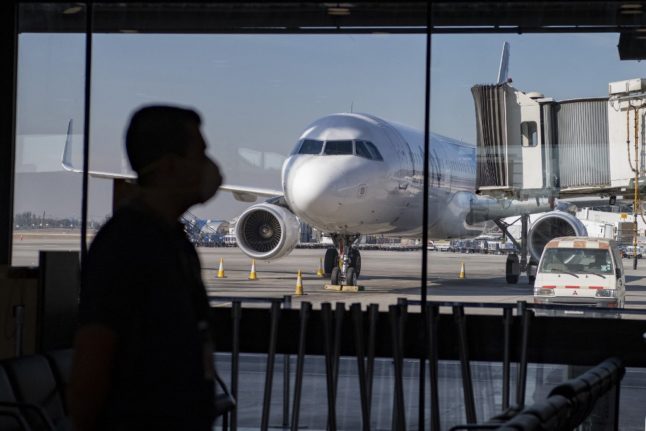The Italian government reiterated on Friday that its current mask-wearing rules remain in place until June 15th, reports newspaper Corriere della Sera.
This means the mask mandate will still apply to all air passengers travelling to or from Italy, despite the end of an EU-wide requirement to wear masks on flights and at airports across the bloc from Monday.
READ ALSO: Reader question: What type of mask will I need for travel to Italy?
National regulations take precedence, the European Union Aviation Safety Agency (EASA) and European Centre for Disease Prevention and Control (ECDC) confirmed when announcing the end of the EU rules.
“Wearing face masks at airports and inflight should be aligned with national measures on wearing masks in public transport and transport hubs,” they said in a joint statement published on May 11th.
READ ALSO: Why are so many Italians still wearing face masks in shops?
“If either the departure or destination States require the wearing of face masks on public transport, aircraft operators should require passengers and crew to comply with those requirements inflight, beyond 16 May 2022.
“Further, as of 16 May 2022, aircraft operators, during their pre-flight communications as well as during the flight, should continue to encourage their passengers and crew members to wear face masks during the flight as well as in the airport, even when wearing a face mask is not required”.
The Spanish government also said on Thursday that air passengers would have to continue wearing face masks on planes.
Italy’s current rules specify that higher-grade FFP2 masks should be worn on all forms of public transport, including buses, trams, regional and high-speed trains, ferries, and planes.
Though rules were eased in some settings from May 1st, masks also remain a requirement until June 15th at Italy’s cinemas and theatres, hospitals and care homes, indoor sporting event and concert venues, schools and universities.



 Please whitelist us to continue reading.
Please whitelist us to continue reading.
Member comments